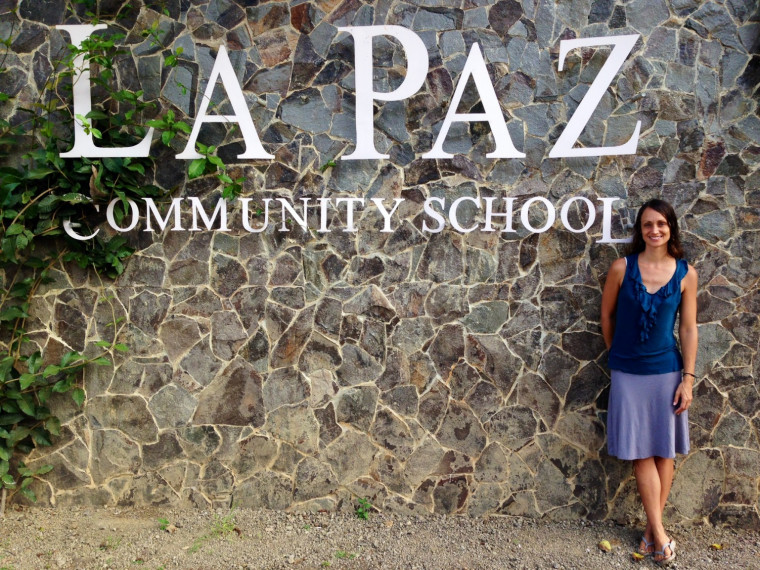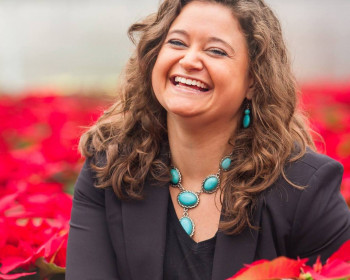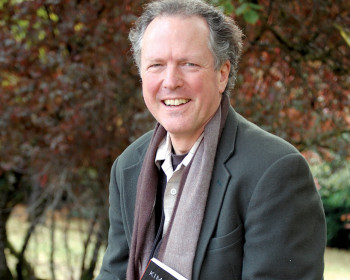Global Achiever
Open gallery

Sara McGowan MAT ’01 always she knew she wanted to teach abroad, but she never imagined she’d one day start her own international school.
Her love of new experiences, her interest in other cultures, and a deep affinity for language learning emerged long before she pursued her master’s at Lewis & Clark. After graduating and teaching briefly in the U.S., she and her future husband, also a teacher, headed south. They settled for a time in Guatemala, married, then went to Costa Rica on vacation. “We drove to the beach, visited a country day school, and basically decided to move there,” McGowan says. Two years later, in the spring of 2007, they recognized a need for something they found lacking in the schools.
“There was a great influx of people coming to the area,” McGowan says. At the time, Costa Rica had become a destination spot for a growing community of American expats and others from around the world. “It was something we were obviously a part of, and it was exciting. But we noticed a growing disconnection. There was a sense that school X was for expats, and school Y was for locals, with very little in between.”
For McGowan, her husband, and four other teachers, this awareness lit a fire to act.
“In May of 2007, six of us decided to start a school,” she says. “It was a leap of faith for sure—none of us had any administrative experience.” By September, La Paz Community School was up and running.
Asking the right questions
“When I first started teaching, I would sometimes ask myself, ‘what would Lewis & Clark’s professors do right now?”—
Sara McGowanMAT ’01
In launching the venture, McGowan was driven by another desire that had burned brightly since her time at Lewis & Clark.
“Culturally, Lewis & Clark was a very open-minded place to receive an education,” she says. “They recognized the importance, for instance, of getting to know students, and taking note of different learning processes. In this type of environment, you raise your knowledge by asking questions. It’s a powerful way to teach.”
This approach, where learners build on what they know by seeking answers and deeper understanding, continues to guide McGowan, and also supported her in the months prior to La Paz’s opening.
“When I first started teaching, I would sometimes ask myself, ‘what would Lewis & Clark’s professors do right now?’ Before we opened, I connected with those same people, told them what we were doing, and literally asked for every bit of information they could share.”
One person with whom McGowan connected was Cynthia Cosgrove, a former Lewis & Clark faculty member.
“Cynthia provided resources, ideas, and strategies, and answered a million questions,” McGowan says. The two kept in touch via email, and Cosgrove encouraged McGowan to connect with others who could lend support, from Kip Ault, a Lewis & Clark faculty emeritus who advised on La Paz’s science and place-based learning curriculum, to experts in the world of dual-language learning.
An ‘international salad bowl’
McGowan earned not only her MAT at Lewis & Clark, but also an ESOL endorsement. Dual-language learning was not only a personal and professional passion for McGowan, but also something she saw as a key to creating greater community-wide connections.
“For people to come closer together,” McGowan says, “we felt it was essential for expat kids to immerse themselves in Spanish, and for local children to have an immersive experience with English.”
For the school’s founders, parents, and community members alike, the dual-language aspect has become a natural part of La Paz’s inclusive, cooperative spirit. Having started with 60 students, La Paz—an authorized International Baccalaureate world school—now boasts 280 students from 26 different nationalities. The education focuses on a wide range of creative, multilingual learning experiences across an integrated curriculum. Most importantly, La Paz has created new opportunities for young learners from underprivileged, middle, and upper class areas alike, in part thanks to a donor-funded scholarship program.
“Currently, we have 20 kids on scholarship,” McGowan says. “Granting this kind of access continues to be our greatest goal. Quite a few La Paz students are the first in their families to go beyond third grade, let alone graduate.”
For McGowan, La Paz’s progressive, inclusive environment is beyond anything she and her fellow co-founders could have imagined eight years ago. It also harkens back to some of her experiences at Lewis & Clark.
“I received a very progressive education at Lewis & Clark,” she says. “We had to work through assignments as our own students would, even listening to read-alouds if it meant putting ourselves in the shoes of elementary school kids.
“Everything was built around constructing our own experience, and discovering our own learning path. In that way, La Paz is following a very similar model. These kids are creating changes and becoming leaders right where they live.”
Dave Jarecki wrote this story.
Graduate Communications is located in room 205 of Rogers Hall on the Graduate Campus.
voice 503-768-6054
fax 503-768-6053
Graduate Communications
Lewis & Clark
615 S. Palatine Hill Road
Portland OR 97219

